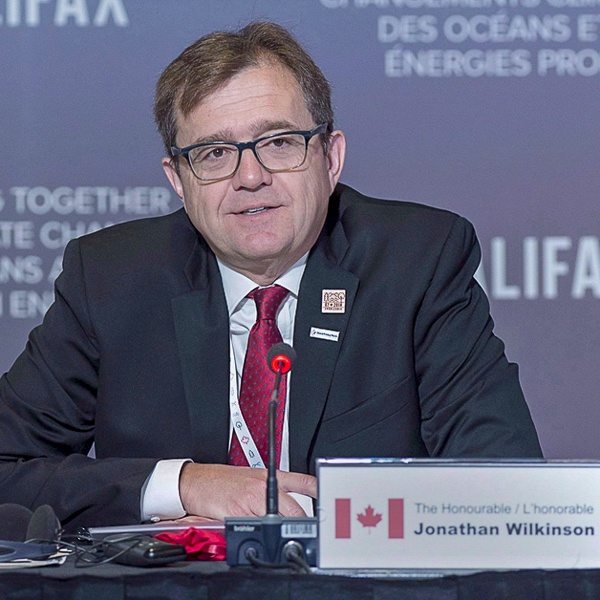Claims by anti-fish farms activist not true says minister
Having more constructive discussions about aquaculture will require that we are forthright in our use of information, says Fisheries Minister Jonathan Wilkinson in an op-ed
By SeaWestNews
This op-ed by Fisheries Minister Jonathan Wilkinson was originally published in the Georgia Straight to correct misinformation spread by anti-fish farm activists
By Jonathan Wilkinson
We’re all familiar with the saying “an ounce of prevention is worth a pound of cure”. Beginning in the 1980s, policy makers began using these aphorisms to describe a “precautionary approach”.
It’s a concept at the heart of many applications of science and is something that will increasingly underpin how Canada will manage aquaculture.
It is the cornerstone of a suite of measures I announced in December to ensure Canada’s aquaculture industry is economically successful and environmentally sustainable.
Over 90 percent of the planet’s wild fish stocks are either fished to the maximum or overfished, yet demand for healthy sources of protein is increasing. Nearly half of fish consumed by humans now comes from aquaculture. It is clear the world needs aquaculture.
Over two-thirds of Canada’s farmed salmon production occurs in B.C.—the economic opportunities for coastal and Indigenous communities in B.C. are significant. However, concerns about the potential impacts have become divisive.
The good jobs and economic prosperity from aquaculture will only be realized if Canadians know that aquaculture is being undertaken in an environmentally sustainable manner.
It’s time to refresh the federal government’s approach to aquaculture by emphasizing more fulsome implementation of the precautionary approach. We must move forward in ways that address and don’t ignore areas of concern.
This means asking: if those with concerns about environmental impacts were eventually found to be correct, which concerns would be most damaging to the environment and what can we do to mitigate?
For example, one area of significant debate has been whether a specific virus could harm wild juvenile salmon near open-net farms along migratory pathways. There is disagreement on this topic. In the new federal framework, this means moving towards an area-based approach to managing aquaculture—an approach that takes into consideration environmental, social, and economic factors when identifying potential areas for new aquaculture development.
This is a discussion that has recently taken place here in B.C. regarding the Broughton Archipelago where the DFO will be working with B.C., industry and First Nations—listening to concerns and moving to an area-based approach.
Another element of our new approach is a focus on emerging technologies—including closed-containment. Recently, we announced an expedited technical and economic study. Results will inform technology development efforts and broader public policy considerations.
Over the past several years we have witnessed a sometimes acrimonious debate regarding aquaculture. It’s important that we move beyond this unproductive conversation—to better engage people of good intent in working to enhance sustainability.
To do this, all interested parties—including DFO—will need to reach out to those with other perspectives to engage in a more productive conversation. In this regard, DFO recently committed to creating a new position of “Science Advisor” and to creating an advisory committee to provide external perspective on aquaculture science priorities.
Having more constructive discussions will however require that we are forthright in our use of information. Too often over past years has one side or the other misconstrued information for the purpose of making their point.
For example, in an article that ran on this website (Georgia Straight) earlier this month, a noted environmental activist asserted that (if not appealed) a recent Federal Court decision regarding piscine orthoreovirus (PRV) requires, by law, that, as of June 4, smolts be tested for PRV before being transferred to open-net pens.
In fact, what the court actually found is that DFO’s current policies set the threshold for “harm” to wild stocks too high and should be revisited. The court also said that upon revisiting this matter, “it is possible that the Minister will still conclude that it is appropriate to maintain the PRV Policy,” i.e. that it is not necessary to test for PRV.
This is simply an example but one that I think highlights an important issue and underlines that we collectively need to be working to ensure we can have a thoughtful, forthright discussion founded on science and evidence.
I believe that folks on all sides of these issues are people of good intent—the vast majority of whom care deeply about the natural environment and about wild salmon. I do however believe we all need to be judicious in our use of facts and that we should all be striving to find ways to speak with each other in more effective ways.
I trust the vast majority of British Columbians do not think that we must choose between growing the economy and protecting the environment—I am one of them. That is why I firmly believe our new science-based approach to aquaculture will support a healthy ocean, good jobs, and economic prosperity on our coasts.
Jonathan Wilkinson (pictured) is the minister of Fisheries, Oceans and the Canadian Coast Guard.
RELATED STORIES
New studies reaffirm PRV is not a salmon killer
US agency alerts public to the lies by anti-fish farm activists

